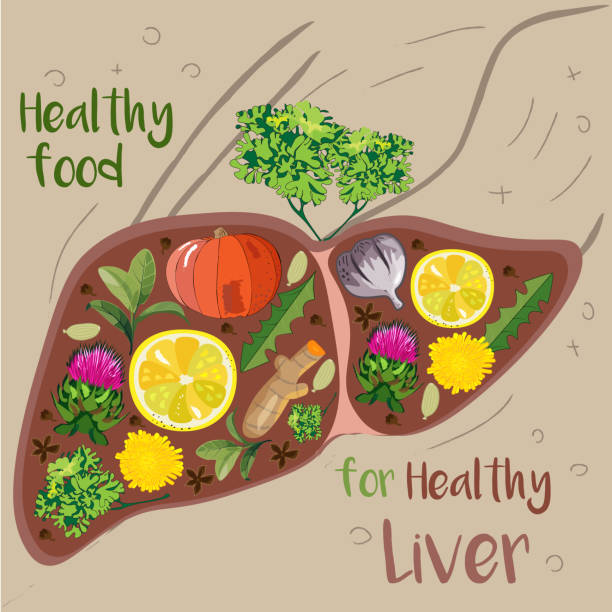Cinnamon is a versatile spice that may be used in a variety of dishes, from apple pie to French toast. It’s manufactured from cinnamon tree bark, which is either wrapped into cinnamon sticks (known as quills) or crushed into a fine powder.
Ceylon cinnamon and Cassia cinnamon are the most common cinnamon types, which come from nations such as India, Sri Lanka, Indonesia, Brazil, Vietnam, and Egypt. The most costly kind is Ceylon cinnamon, often known as genuine cinnamon. The most prevalent variety of cinnamon in grocery shops is cassia cinnamon, which is darker and tougher.
Cinnamon is said to have therapeutic benefits in addition to its culinary application. Cinnamon is said to decrease blood sugar, cure superficial fungal infections, and reduce inflammation and discomfort, according to alternative medicine practitioners. Cinnamon’s ability to deliver on these promises is still debated in the scientific community.
Health Benefits
Cinnamon has been utilised in traditional medicine for ages. Cassia cinnamon is used in traditional Chinese medicine to treat colds, flatulence, nausea, diarrhoea, and uncomfortable menstrual periods. It is also said to boost energy, vitality, and circulation, especially in those who suffer from chilly feet.
Cinnamon is used in Ayurvedic medicine to treat diabetes, indigestion, and colds, and it can assist to balance a person’s kapha dosha (physical and emotional energies). It’s also found in chai tea and cinnamon tea, both of which are said to help with digestion.
Cinnamon gets its taste and scent from a molecule called cinnamaldehyde, which is found in the essential oil. Cinnamaldehyde has antibacterial and anti-inflammatory characteristics that may aid in the treatment of certain metabolic, viral, digestive, and respiratory problems. 1 Here’s what the evidence currently says:
Metabolic
Cinnamon has been shown in studies to help decrease blood sugar levels. People with diabetes or prediabetes may benefit from it, according to studies.
In a 2003 research published in Diabetes Care, 60 patients with type 2 diabetes were given a daily dosage of cinnamon to see how effective it was.
The participants were divided into 20 groups and given 1-, 3-, and 6-gram dosages of cinnamon in tablet form, respectively (an amount roughly equivalent to one-quarter teaspoon to 1 teaspoon).
After 40 days, all three groups had lower fasting glucose (by 18% to 29%), triglycerides (by 23 percent to 30 percent), LDL cholesterol (by 7% to 27 percent), and total cholesterol (by 7% to 27 percent) (12 percent to 26 percent ). In contrast, all individuals’ haemoglobin A1C (HbA1C) levels were constant. 2 This amount of reduction may be sufficient to treat metabolic syndrome. Cinnamon, taken medicinally, might possibly enhance all major indicators for metabolic syndrome, including body mass index (BMI), waist-to-hip ratio, blood lipid profile, and blood pressure, according to a 2016 assessment of research.
This isn’t to say that cinnamon’s metabolic advantages are undisputed. There are currently just a few well-controlled trials available (including those listed above).
Cinnamon’s efficacy in managing blood sugar was “promising,” according to a 2010 study from Germany that evaluated high-quality randomised controlled studies, but its influence on weight reduction and blood pressure remained largely unproven.
Infectious
Cinnamon has been shown to have antibacterial and antifungal effects in studies. Cinnamon has been shown to be effective against both Candida albicans, the fungus that causes yeast infections and thrush, and Helicobacter pylori, the bacteria that causes stomach ulcers, in test tube studies.
According to a 2016 laboratory study published in the Journal of Clinical and Diagnostic Research, cinnamon essential oil may eliminate 50% of Candida strains. Furthermore, the oil was found to be effective against strains resistant to Diflucan, an antifungal medication (fluconazole).
Unfortunately, there is little proof that cinnamon taken orally has the same impact. This is particularly true with H. pylori. According to research released in 2014, cinnamon supplements exceed the therapeutic threshold required to eliminate this difficult-to-treat bacterium.
Digestive
Cinnamon tea is a traditional home treatment for dyspepsia. Researchers in Australia ran a pilot trial on the effects of two cinnamon-containing treatments on 31 patients with irritable bowel syndrome to see how they affected digestion (IBS). 7 One was created for constipation-predominant IBS (IBS-C), while the other was created for diarrhea-predominant IBS (IBS-D) (IBS-D).
Participants with IBS-C had a 20% increase in bowel movements, as well as a 20% decrease in straining, stomach discomfort, and bloating. Treatment for IBS-D had no effect on those who were given it.
Cinnamon may either enhance intestinal motility or have a moderate laxative effect, based on these findings. Aside from that, there isn’t much proof that cinnamon can help with diarrhoea. Furthermore, too much cinnamon might cause heartburn, aggravating the symptoms of indigestion.
Respiratory
When used in aromatherapy, cinnamon essential oil can help relieve congestion, enhance mood, and increase energy. While some alternative therapists believe it can help strengthen the immune system and therefore prevent colds and flu, there is no proof that cinnamon, in any form, impacts the immunological response, innate or adaptive.
Cinnamon may aid in the relief of nasal symptoms associated with colds, flu, and hay fever. A nasal spray containing cinnamon extract reduced nasal symptoms in 20 patients with allergic rhinitis compared to a placebo in a 2014 research published in the Journal of Herbal Medicine. The twice-daily spray improved lung function measurements after four weeks with no noticeable adverse effects.
Possible Side Effects
Cassia cinnamon, which is commonly available in food shops, has significant levels of coumarin, a chemical. Cinnamon can induce heartburn, indigestion, and moderate sweating if taken in large amounts. The buildup of coumarin in the body can cause blood clotting problems and liver damage over time.
Cinnamon supplements should be avoided by persons who are using blood thinners such as Coumadin (warfarin), since they might cause bruising and nosebleeds. Cinnamon supplements should not be taken before surgery or a dental treatment.
If you use cinnamon essential oil internally, it might induce nausea, vomiting, diarrhoea, and dizziness. Even if the oil is “therapeutic grade,” a single drop in a cup of tea may not be harmful, but anything more should be avoided.
Cinnamon essential oil should be diluted in a carrier oil such as almond or jojoba oil before using topically. Cinnamon oil can produce skin irritation, redness, rash, and a burning feeling if used undiluted. 9 Cinnamon should never be used vaginally to cure a yeast infection.
Cinnamon can also cause an allergic reaction in certain people, which is generally mild to moderate. Rash, nasal congestion, dizziness, and nausea are some of the symptoms.
If you experience wheezing, shortness of breath, face or throat swelling, vomiting, or an irregular heart rate after taking a cinnamon supplement, go to the local emergency hospital right once.
Cinnamon supplements have not been proven to be safe in pregnant women, nursing mothers, or children.



